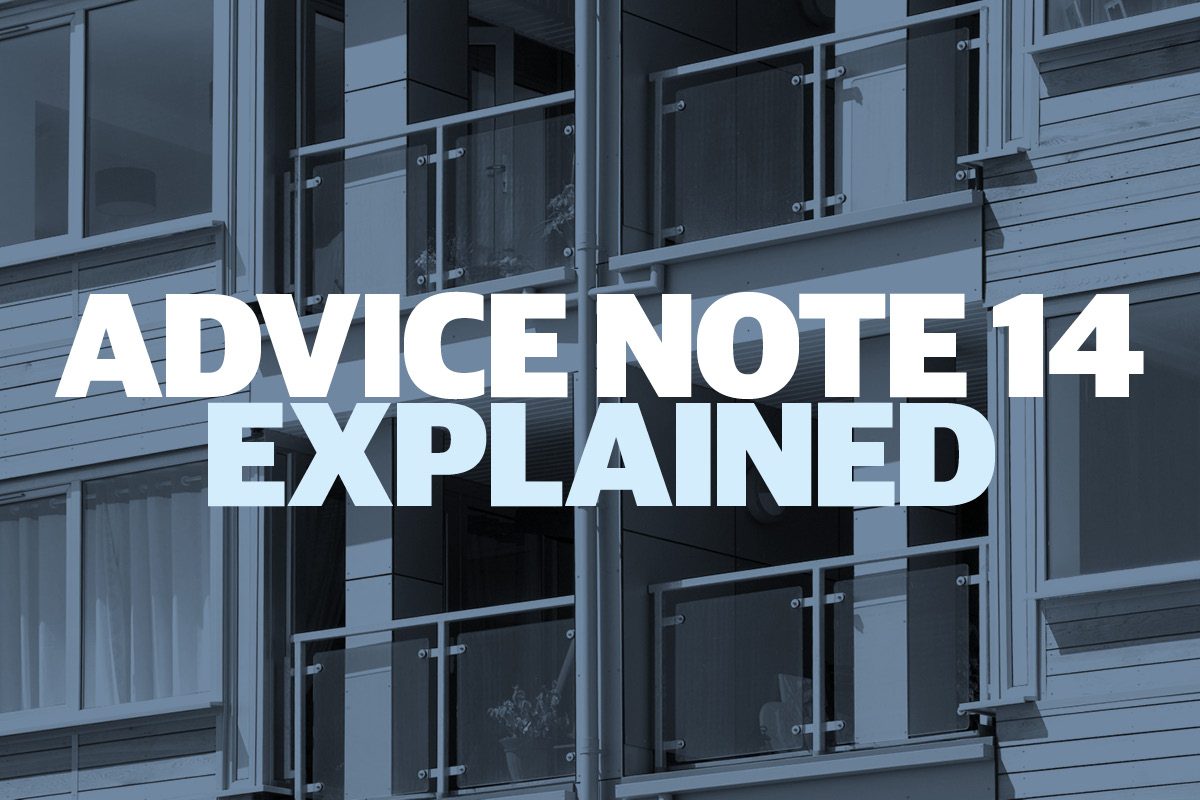England faces ‘complete stall’ of flat selling due to government guidance on combustibles, industry leader warns
The chief executive of the trade body that represents residential managing agents in the UK has warned that confusion over combustible materials on buildings could cause “the complete stalling of flat selling in England”.
Nigel Glen, chief executive of the Association of Residential Managing Agents (ARMA), said that one of his members alone has 500 stalled sales as a result of the government’s Advice Note 14, with more coming in daily.
Advice Note 14, published in December last year, says that all combustible materials on high rises must be either of ‘limited combustibility’ or pass a large-scale fire test.
But this has led to surveyors entering ‘zero’ valuations for flats because of the presence of any combustible materials on the external walls – no matter how small.
As a result, leaseholders in these buildings are unable to sell until the materials are removed or a test is carried out. With testing prohibitively expensive and facilities limited, the issue has resulted in thousands of sales falling through.
Research published by the Labour Party last month suggested that 600,000 flat owners may be affected.
Mr Glen said that the issues surrounding Advice Note 14 are “enormous”.
“One member alone has 500 stalled sales with more coming in every day. It could cause the complete stalling of flat selling in England,” he said.
Leaseholder support groups have told Inside Housing they are receiving floods of queries about the issues, which are usually unknown until a leaseholder attempts to sell their home.
Official government guidance before Grenfell offered several routes for combustible materials to be used on high rises without a large scale test.
The first was a statement, contained in ‘diagram 40’ of the official guidance note Approved Document B, saying that materials used in the external surfaces of walls were required to be ‘Class 0’ or Euroclass B.
This permitted the use of many products containing combustible materials – including some aluminium composite material cladding.
The guidance was also interpreted as allowing ‘desktop studies’, where experts would sign off untested combustible cladding systems as compliant based on interpretations of other tests.
The government was aware of this interpretation before Grenfell, and has previously argued that it was a legitimate way of applying the guidance.
Finally, materials used around windows were interpreted not to be covered by the regulations that applied to walls – resulting in a huge amount of combustible insulation being used in window sets.
Advice Note 14 effectively retrospectively closed off all these routes to compliance, leaving thousands of buildings suddenly non-compliant with the guidance.











